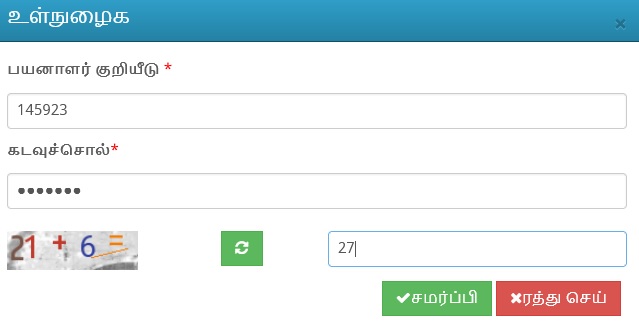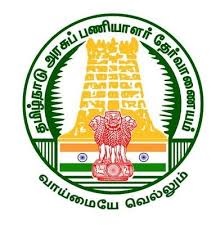TNPSC Download Hall Ticket 2024 Combined Technical Services Examination : Tamil Nadu PSC
Organisation : Tamil Nadu Public Service Commission (TNPSC)
Recruitment Name : Combined Technical Services Examination (Non – Interview Posts) 2024
Announcement : Download Hall Ticket
Exam Date : 14.10.2024 to 23.10.2024 (excluding 19.10.2024 and 20.10.2024) and on 26.10.2024 FN & AN
Website : https://apply.tnpscexams.in/secure?app_id=UElZMDAwMDAwMQ==
How to Download TNPSC Hall Ticket?
For direct recruitment to the posts in Combined Technical Services Examination (Non – Interview Posts) for which Objective Type (CBT & OMR Method Examination) and Descriptive Type Examination is scheduled to be held on from 14.10.2024 to 23.10.2024 (excluding 19.10.2024 and 20.10.2024) and on 26.10.2024 FN & AN at 38 District Centres.

The Memorandum of Admission (Hall Ticket) for the admitted candidates has been hosted in the Commission’s website www.tnpsc.gov.in and www.tnpscexams.in. The Memorandum of Admission (Hall Ticket) shall be downloaded through One Time Registration (OTR) of the candidate by entering the Application Number and Date of Birth.
Syllabus of Combined Technical Services Examination
GENERAL STUDIES : (Degree Standard)
Unit I: General Science
(i) Scientific Knowledge and Scientific Temper – Power of Reasoning – Rote Learning vs Conceptual Learning – Science as a tool to understand the past, present and future.
(ii) Nature of Universe – General Scientific Laws – Mechanics – Properties of Matter, Force, Motion and Energy – Everyday application of the Basic Principles of Mechanics, Electricity and Magnetism, Light, Sound, Heat, Nuclear Physics, Laser, Electronics and Communications.
(iii) Elements and Compounds, Acids, Bases, Salts, Petroleum Products, Fertilisers, Pesticides.
(iv) Main concepts of Life Science, Classification of Living Organisms, Evolution, Genetics, Physiology, Nutrition, Health and Hygiene, Human Diseases.
(v) Environment and Ecology.
Unit II: Current Events
(i) History – Latest diary of events – National symbols – Profile of States – Eminent personalities and places in news – Sports – Books and authors.
(ii) Polity – Political parties and political system in India – Public awareness and General administration – Welfare oriented Government schemes and their utility, Problems in Public Delivery Systems.
(iii) Geography – Geographical landmarks.
(iv) Economics – Current socio – economic issues.
(v) Science – Latest inventions in Science and Technology.
(vi) Prominent Personalities in various spheres – Arts, Science, Literature and Philosophy.
Unit III: Geography of India
(i) Location – Physical features – Monsoon, Rainfall, Weather and Climate – Water Resources – Rivers in India – Soil, Minerals and Natural Resources – Forest and Wildlife – Agricultural pattern.
(ii) Transport – Communication.
(iii) Social Geography – Population density and distribution – Racial, Linguistic Groups and Major Tribes.
(iv) Natural calamity – Disaster Management – Environmental pollution: Reasons and preventive measures – Climate change – Green energy.
Unit IV: History and Culture of India
(i) Indus Valley Civilization – Guptas, Delhi Sultans, Mughals and Marathas – Age of Vijayanagaram and Bahmani Kingdoms – South Indian History.
(ii) Change and Continuity in the Socio-Cultural History of India.
(iii) Characteristics of Indian Culture, Unity in Diversity – Race, Language, Custom.
(iv) India as a Secular State, Social Harmony.
Unit V: Indian Polity
(i) Constitution of India – Preamble to the Constitution – Salient features of the Constitution – Union, State and Union Territory.
(ii) Citizenship, Fundamental Rights, Fundamental Duties, Directive Principles of State Policy.
(iii) Union Executive, Union Legislature – State Executive, State Legislature – Local Governments, Panchayat Raj.
(iv) Spirit of Federalism: Centre – State Relationships.
(v) Election – Judiciary in India – Rule of Law.
(vi) Corruption in Public Life – Anti-corruption measures – Lokpal and Lok Ayukta – Right to Information – Empowerment of Women – Consumer Protection Forums, Human Rights Charter.
Unit VI: Indian Economy
(i) Nature of Indian Economy – Five year plan models – an assessment – Planning Commission and Niti Ayog.
(ii) Sources of revenue – Reserve Bank of India – Fiscal Policy and Monetary Policy – Finance Commission – Resource sharing between Union and State Governments – Goods and Services Tax.
(iii) Structure of Indian Economy and Employment Generation, Land Reforms and Agriculture – Application of Science and Technology in Agriculture – Industrial growth – Rural Welfare Oriented Programmes – Social Problems – Population, Education, Health, Employment, Poverty.
Unit VII: Indian National Movement
(i) National Renaissance – Early uprising against British rule – Indian National Congress – Emergence of leaders – B.R.Ambedkar, Bhagat Singh, Bharathiar, V.O.Chidambaranar, Jawaharlal Nehru, Kamarajar, Mahatma Gandhi, Maulana Abul Kalam Azad, Thanthai Periyar, Rajaji, Subash Chandra Bose, Rabindranath Tagore and others.
(ii) Different modes of Agitation: Growth of Satyagraha and Militant Movements.
(iii) Communalism and Partition.
Unit VIII: History, Culture, Heritage and Socio – Political Movements in Tamil Nadu
(i) History of Tamil Society, related Archaeological discoveries, Tamil Literature from Sangam Age till contemporary times.
(ii) Thirukkural :
(a) Significance as a Secular Literature
(b) Relevance to Everyday Life
(c) Impact of Thirukkural on Humanity
(d) Thirukkural and Universal Values – Equality, Humanism, etc
(e) Relevance to Socio-Politico-Economic affairs
(f) Philosophical content in Thirukkural
(iii) Role of Tamil Nadu in freedom struggle – Early agitations against British Rule – Role of women in freedom struggle.
(iv) Evolution of 19th and 20th Century Socio-Political Movements in Tamil Nadu – Justice Party, Growth of Rationalism – Self Respect Movement, Dravidian Movement and Principles underlying both these Movements, Contributions of Thanthai Periyar and Perarignar Anna.
Unit IX: Development Administration in Tamil Nadu
(i) Human Development Indicators in Tamil Nadu and a comparative assessment across the Country – Impact of Social Reform Movements in the Socio – Economic Development of Tamil Nadu.
(ii) Political parties and Welfare schemes for various sections of people – Rationale behind Reservation Policy and access to Social Resources – Economic trends in Tamil Nadu – Role and impact of social welfare schemes in the Socio – Economic Development of Tamil Nadu.
(iii) Social Justice and Social Harmony as the Cornerstones of Socio- Economic Development.
(iv) Education and Health Systems in Tamil Nadu.
(v) Geography of Tamil Nadu and its impact on Economic growth.
(vi) Achievements of Tamil Nadu in various fields.
(vii) e-Governance in Tamil Nadu.
Unit X: Aptitude and Mental Ability
(i) Simplification – Percentage – Highest Common Factor (HCF) – Lowest Common Multiple (LCM).
(ii) Ratio and Proportion.
(iii) Simple interest – Compound interest – Area – Volume – Time and Work.
(iv) Logical Reasoning – Puzzles-Dice – Visual Reasoning – Alpha numeric Reasoning – Number Series.

Instructions of Candidates For Written Examinations
Instructions to be followed by candidates while appearing for written examinations
1. Candidates shall present themselves at the examination venue with the memorandum of admission (hall ticket) downloaded from the Commission‘s website, failing which, they shall not be allowed to write the examination. Candidates shall also bring with them, a photocopy of their Aadhaar card / Passport / Driving Licence / Permanent Account Number (PAN) card / Voter ID card.
2. Candidates must appear for the examination at the venue they have been allotted, as mentioned in the memorandum of admission (hall ticket). Change of venue will not be permitted. No candidate, without prior approval, shall be allowed to appear for the examination at a venue other than the one originally allotted.
3. Candidates may be subjected to frisking at the examination venue, if required, with the assistance of male / female police personnel or any authorized persons, as the case may be.
4. Candidates are advised, in their own interest, not to bring any of the banned items including mobile phones to the venue of the examination, as arrangements for safekeeping of the same cannot be assured.
5. Parents and others who accompany the candidates will not be permitted inside the examination venue.
6. If the photograph of the candidate in the memorandum of admission (hall ticket) is not printed or not clear or does not match with candidate‘s appearance, he / she should furnish a separate photograph affixed on a plain paper, along with his name, address, register number and signature along with a copy of the memorandum of admission (hall ticket) and a copy of Aadhaar card / Passport / Driving License / Permanent Account Number (PAN) card / Voter ID card, to the Chief Invigilator, who shall countersign it.
7. The ID proof in original, should also be shown to the room invigilator for verification. The room invigilator upon verification of the identity of the candidate, shall obtain an undertaking as to the genuineness of the candidate and to the effect that he / she is aware that he / she is liable to any criminal / penal action initiated by the Commission, if the information furnished is found to be incorrect at a later date. The undertaking shall then be handed over to the Chief Invigilator.
8. In order to facilitate verification of the identity of the candidates and explanation of the procedures pertaining to the examination, the candidates shall present themselves at the examination venue one hour before the time scheduled for the commencement of the examination.
9. All gates serving as entry into the examination venue shall be closed thirty minutes before the commencement of the examination and no one shall be allowed into the venue thereafter.
10. In case of examinations to be held in both forenoon and afternoon sessions, the reporting time for the afternoon session shall also be thirty minutes before the commencement of the examination and no one shall be allowed into the venue thereafter.
11. In case of extraordinary circumstances, like pandemic conditions, etc., the procedures / precautions prescribed (e.g., use of sanitizer and face mask, practicing social distancing) shall be adhered to.
12. Candidates must show the memorandum of admission (hall ticket) to the Invigilator / Chief Invigilator / inspection authorities / any authorized persons of the examination hall, on demand, for verification.
13. Candidates must ensure that the Room Invigilator signs in the memorandum of admission (hall ticket). The memorandum of admission should be preserved carefully and retained permanently. The memorandum of admission should be produced if shortlisted for the next stage of selection / whenever sought for by the Commission.
14 The memorandum of admission may also be photo copied, as a precaution, after the exam is over.
15. No duplicate memorandum of admission (hallticket) will be issued later.
16. Candidates should maintain strict discipline not only in the examination room, but also inside the campus of the examination venue. Candidates found smoking / in toxicated, or found to have entered into a quarrel of any kind, or to have misbehaved with the Chief Invigilator or with the inspection authorities or with the invigilator or with any other candidate either in the examination hall or inside the campus of the examination venue, either before, during or after the examination, are liable to invalidation of answer sheet and debarment for any period the Commission may deem fit, as well as appropriate criminal action.
17. Water, tea, coffee, snacks, soft drinks, etc., will not be allowed inside the examination venue.
18. Candidates suffering from serious health issues, may, with the consent of the Chief Invigilator, deposit medication or other medical requirements on the room invigilator‘s table for use if needed.

Recent Comments